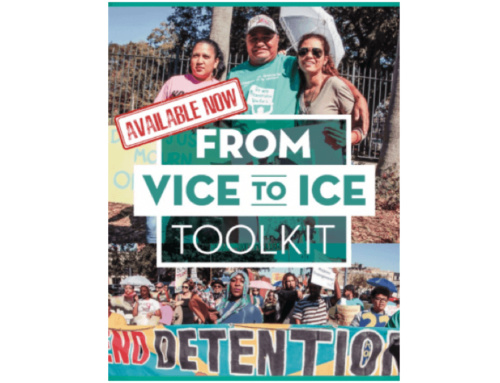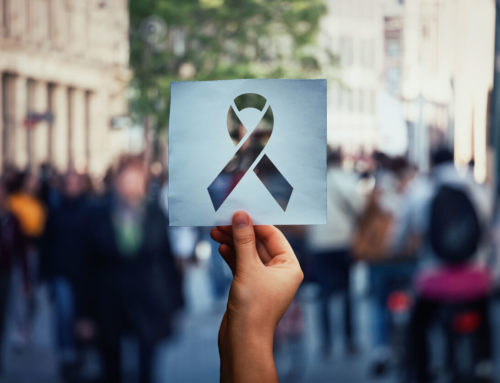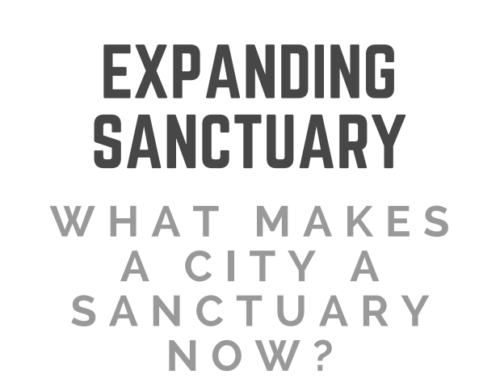In 2013 Mayor Bill De Blasio was voted into office with pledges to reign in police violence and stop-and-frisk policing targeted at blacks and latinos. (Remember that emotional video about needing to have stop-and-frisk conversations with his son, Dante?) And since he took office, street-stops have continued on a downward trend–there were about 24,000 stops last year, a far cry from the peak of 685,000 in 2011 under Bloomberg.
But not everyone is satisfied. There’s a “Right to Know Act” in the works that councilmembers and police reform advocates are calling “common-sense” police reform, and they’re trying to build momentum to get it pushed through City Council. Today hundreds of New Yorkers gathered outside City Hall to support the legislation, first introduced by council members Antonio Reynoso (of Bushwick) and Ritchie Torres in November 2014.

The act consists of two pieces of legislation aimed at police interactions on the street: A bill that would require police officers to identify themselves and explain their motives whenever they stop someone, seek entry to a home, or other non-emergency situations; and a second bill that would require officers to explain that a person has the right to refuse a search when there is no legal justification and receive proof of consent for the search.

The rally, organized by Communities United for Police Reform, was attended by the families of victims of NYPD violence, such as Ramarley Graham, Mohamed Bah, and Anthony Baez, as well as local politicians, community groups (like Make the Road, the Arab American Association of New York, Picture the Homeless and the Anti-Violence Project) and many young people who had experienced stop-and-frisk policing first hand.

Fifteen-year-old Zaire Kiron, a youth leader for Make the Road, recounted her experience getting stopped by the police a few months ago. “Officers stopped us, questioned us, and frisked us without telling us the reason why or explaining themselves,” she said. “Of course, we could have requested the name and badge of the officer, but sometimes asserting your legal rights could lead to police brutality or disrespect.”
“This legislation isn’t about handcuffing the police,” she continued. “It’s about addressing the power and inequity that exists when dealing with those who carry a badge and a gun.”
At an oversight hearing on the bills last June, Police Commissioner Bill Bratton testified against the proposed legislation, calling it an “unprecedented intrusion into the operational management” of police departments. He said use of force had declined by 34 percent between 2010 and 2014 and pointed to the new community policing model as a step forward that would clear up many of the same concerns addressed with the the Right to Know Act.
The mayor also hasn’t come out in support of the act. Back in 2014 when the bills were first brought up, he said, “In the past, I have raised concerns about that legislation because I want to make sure that we don’t inadvertently undermine the ability of law enforcement to do its job.”
In a statement about the act today, the mayor’s press secretary mentioned other measures the administration has taken to reduce discriminatory practices. “From reducing Stop and Frisk and reforming marijuana arrest policy to launching neighborhood policing and piloting body cameras, we’ve taken clear steps to reduce unnecessary arrests and strengthen NYPD’s relationship with the community while keeping New York the safest big city in America,” she said.
At the rally, Lower East Side council member Margaret Chin, representing the Women’s Caucus, urged the council to bring the legislation to a vote. “We have the majority of City Council supporting this legislation,” she said. “It’s been two years and New Yorkers and our community people have the right to know, so let’s work together and get this legislation passed.”
“Police officers, they have the right to do their job,” she added. “But community members have the right to know. So it doesn’t take a lot, they should just have a card to let us know their name, rank and shield.” Police currently have business cards, but they are not required to give them when making a stop on the street. A report published in February also showed that NYPD is still struggling to fulfill a new rule requiring them to properly document stop-and-frisk encounters and give tear-off receipts.

Council member Reynoso said the new legislation would make a big difference in improving community relationships on the street. “Right now, a lot of young men–especially young men of color–are incriminating themselves in non-consensual searches. The laws are going to make it so you actually know you have the right to deny that search,” he said. “These are two things that are already our rights! All we’re saying is: you should inform us of those rights. It’s very basic, very simple, but will make all the difference when we talk about interaction on the ground.”
Want to learn more? Check out this nifty primer.
Peace Poets at Right to Know Rally from Bedford + Bowery on Vimeo.



